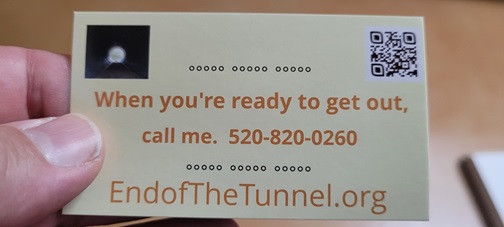
How many times have you said, “I can’t,” in your life? Were you right? How many times have you gone into a situation with the mindset of, “I am going to fail,” but succeeded anyway? I can tell you that, on those occasions when you succeeded despite your doubt, there was a part of you that told yourself, “I have to.“
“I have to because it’s my job;”
“I have to for my family, my kids;”
“I have to do this to pass this class;”
“I have to do this so I can pay my bills;” and sometimes,
“I have to because it’s the right thing to do.”
But what if you take away those mandates? What if you don’t have a job? Maybe you’re retired, you’re in between jobs, maybe you’re just on vacation. If you’re an accountant, and you go on a cruise, are you going to stay up late doing people’s taxes because some of the other passengers are late in filing?
What if the kids are grown; or maybe you never had kids? What if you’re no longer in school and don’t need the grade? Are you still burning the candle at both ends when there’s no deadline? What if you don’t need the money? If you won the lottery, would you go back to work the next day?
What if that moral incentive isn’t there? Everybody knows right from wrong… unless they’re psychotic, but what if people don’t have the motivation to choose what’s right simply because it’s right? I think we’ve all seen the effects of such decisions.
There’s another mandate–another motivator to succeed in spite of that nagging feeling of “I can’t.”
I have to do this… or I’m going to get hurt, get sick, or maybe even, I’m going to die. Self-preservation. This isn’t just a matter of My Body is a Temple, this is My Body is Fallible– my body is vulnerable to injury, susceptible to infection–my body is not invincible. I am mortal. That’s a whole different ball of wax. When we were younger, we didn’t consider fatality as a potential consequence of our decisions. We did stupid things, ate questionable food, hung out with the wrong people, followed the wrong leaders; and for those who followed us, we set the wrong precedents.
We can’t go back. We know too much about our vulnerability, our mortality. But what if we just didn’t care–about any of it? No job, no kids, no bills, no moral fortitude, and… no sense of self-worth–how do your choices and actions change when you have no reason to care–no reason to live?
This is life in the tunnel. There are exceptions to the rule, but that’s a huge difference between the housed and un-housed communities–the senses of self-esteem, responsibility, duty, sacrifice, future, and self-worth are easy to find in American homes, but they are remarkably scarce on the streets. In fact, the most common driving force in the tunnel is not the escape from it, but escaping the reality of it–trapped within a world of “I can’t” without anything that even hints, “I have to.” Add to that an unlimited, dirt-cheap supply of Fentanyl and meth. It’s hard to imagine. More so, it’s hard to imagine finding hope in a place so devoid of positivity. It’s hard to find a motivating precedent, a success story, a light at the end of the tunnel.
It’s a Hell on Earth. A pair of clean socks and underwear aren’t going to do it. Take someone from this world and drop them into an apartment with paid utilities–nothing changes. We don’t take hot and cold running water for granted. We take the desire for hygiene for granted. What good is a fully functioning bathroom when there is no reason to bathe? That’s the reality we need to get through our heads when we contemplate the homeless phenomenon. It’s not a housing problem. It really goes much deeper than that.
Self-esteem, responsibility, duty, sacrifice, future, and self-worth–these are the goals. They’re intangible, personal, and intimate. They don’t come from handouts. We can’t buy them in bulk and stuff them into backpacks at Christmastime. That’s what makes the End of the Tunnel project different. It’s a comprehensive, individualized, hands-on, start-to-finish mission to achieve complete societal rehabilitation for anyone who’s willing to reach for it. Each case requires… whatever it takes. It cannot be done without the kind of emotional investment that makes success a necessity, and failure a heartbreak.
We don’t get involved with people who aren’t willing to commit to their rehabilitation, preserving and focusing limited resources (both tangible and intangible) on complete and utter success for each individual–the end of the tunnel.